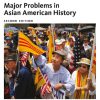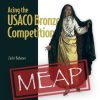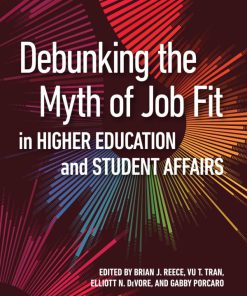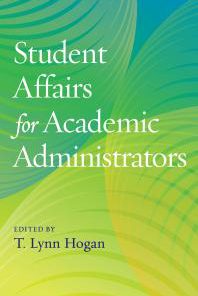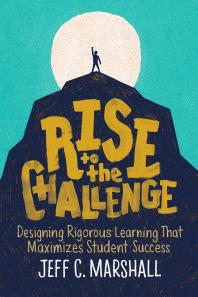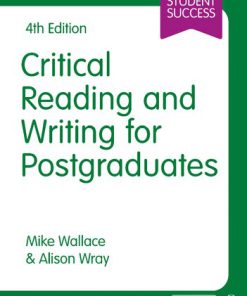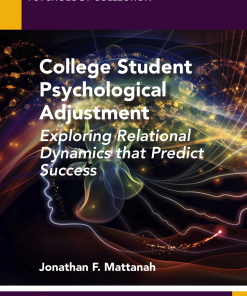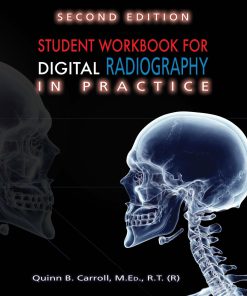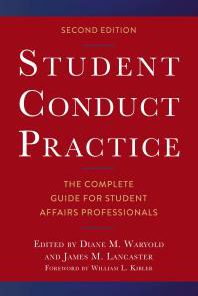Leading Assessment for Student Success 1st Edition by Rosie Phillips Bingham, Daniel Bureau, Amber Garrison Duncan, Marilee Bresciani Ludvik ISBN 9781620362235 1620362236
$50.00 Original price was: $50.00.$25.00Current price is: $25.00.
Leading Assessment for Student Success 1st Edition by Rosie Phillips Bingham, Daniel Bureau, Amber Garrison Duncan, Marilee Bresciani Ludvik – Ebook PDF Instant Download/Delivery: 9781620362235 ,1620362236
Full download Leading Assessment for Student Success 1st Edition after payment
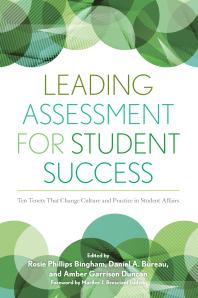
Product details:
ISBN 10: 1620362236
ISBN 13: 9781620362235
Author: Rosie Phillips Bingham, Daniel Bureau, Amber Garrison Duncan, Marilee Bresciani Ludvik
Leading Assessment for Student Success 1st Edition Table of contents:
Part One Philosophical Commitments
1. Tenet One: Understand The “ why ” of Assessment
SSAO’s Perspective
Always the Struggle: How to Tell the Story
Why Assessment Matters
Clarifying Our Language and Approaches to Assessment
Conclusion
References
2. Tenet Two: Commit to Student Learning as a Primary Focus
SSAO’s Perspective
Student Learning and Student Affairs Assessment
How College Students Learn
Prior Knowledge and Transfer
Experiential Learning
Integration of Learning
Drafting Learning Outcomes
Models for Assessment
I-E-O Model
Self-Authorship Model
Standards and Frameworks for Assessing Student Learning
The SSAO Role: Applying Frameworks to Assess Learning in Student Affairs
Conclusion
References
Part Two Division Leadership and Culture
3. Tenet Three: Lay the Foundation for a Sustainable Assessment Culture
SSAO’s Perspective
Student Affairs Values: Personalizing Why Culture Change Is Vital
Change the Conversation
Committing to Culture Change
Commitment
Consistency
Connection
Communication
Conclusion
References
4. Tenet Four: Develop Strategies to Engage Staff in a Commitment to Assessment
SSAO’s Perspective
Developing Strategies to Engage Staff in a Commitment to Assessment
Know the Campus Culture
Create Systemic and Systematic Assessment Processes
Tell the Story Through Knowing the Data
Provide Annual Assessment Presentations
Give Rewards and Feedback
Engage in Creative Infusion
Build Trust and
Consider the Ethical Implications of Assessment
Conclusion
References
5. Tenet Five: Implement Accountability and Support Structures to Encourage Assessment
SSAO’s Perspective
Challenge
Motivation as a Vehicle for Challenge
Institutional Examples of Rewards and Recognition
Accountability as a Vehicle for Challenge
Why Accountability Matters
Support
Conclusion
References
6. Tenet Six: Anchor Cultural Change
SSAO’s Perspective
The Four Components of Sustained Assessment Culture in Student Affairs
Commitment
Consistency
Connection
Communication
Conclusion
References
Part Three Sound Assessment Practices
7. Tenet Seven: Develop Assessment Plans
SSAO’s Perspective
Developing Assessment Plans
The Importance of Assessment Plans and Assessment Reports
The SSAO’s Role in Assessment Plans and Reports
Implementing Assessment Plans and Reports
Conclusion
References
Appendix 7.A Assessment Plan Template
Appendix 7.B Assessment Report Template
8. Tenet Eight: Connect Assessment Plans to Institutional and Divisional Goals
SSAO’s Perspective
Linking Assessment Plans to Institutional and Divisional Strategic Plans
Models for Organizational Change
The SSAO’s Role in Strategic Planning
The Language of Strategic Planning
Setting a Course: The Role of Vision and Mission
Connecting Student Affairs to the University Strategic Plan: An Example
SWOT Analysis: Exploring Organizational Identity and External Conditions
Decisions About Measurement and Data Management
Fostering Collaboration and Integrated Planning
Reporting Cycles and Processes
Organizational Culture
Conclusion
References
9. Tenet Nine: Determine The Appropriate Methods for Assessing Programs and Services
SSAO’s Perspective
What to Assess?
Determining Approaches
Selecting Assessment Tools
Direct Evidence
Indirect Evidence
Accurate and Comprehensive Data
Quantitative Rigor
Qualitative Rigor
Rigor for Both Quantitative and Qualitative Methods
Conclusion
References
10. Tenet Ten: Disseminate Data to Leverage Buy-In and Promote Utility to the Campus Community
SSAO’s Perspective
Data Rich, Information Poor
SSAO as Chief Assessment Spokesperson
Information-Sharing: Making Findings Resonate With Stakeholders
Eight Essential Elements for Effective Information-Sharing
Element 1Authenticity
Element 2Know Your Audience
Element 3Present User-Friendly Information
Element 4Use High-Quality Visuals
Element 5Choose Your Outlets Wisely
Element 6Do Not Become “Stale”; Nobody Likes “Old News”
Element 7Make Information Actionable
Element 8Appreciate the Importance of Following Up
Best Practices: Delivering Data, Informing Stakeholders
Briefing Books and Annual Reports
Conclusion
Online Resources
References
Epilogue: Using the Ten Tenets to Navigate Change
Student Centered, Learning Based
Defining Quality of Credentials
Competency-Based Education
Comprehensive Transcripts
Big Data Analytics
Accountability Measures
Looking Forward
Call to Action
References
About the Contributors
Index
People also search for Leading Assessment for Student Success 1st Edition:
leadership assessment for students
leading indicators of student success
assess for success quizlet
assess for success assessing personal strengths and weaknesses
bleeding assessment tool pdf
Tags: Rosie Phillips Bingham, Daniel Bureau, Amber Garrison Duncan, Marilee Bresciani Ludvik, Leading Assessment, Student Success
You may also like…
Education Studies & Teaching - Academic Administration
The Handbook of Student Affairs Administration George S. Mcclellan
Education Studies & Teaching - School Education & Teaching
Reference - Writing
History & Research
Uncategorized
Medicine - Radiology

